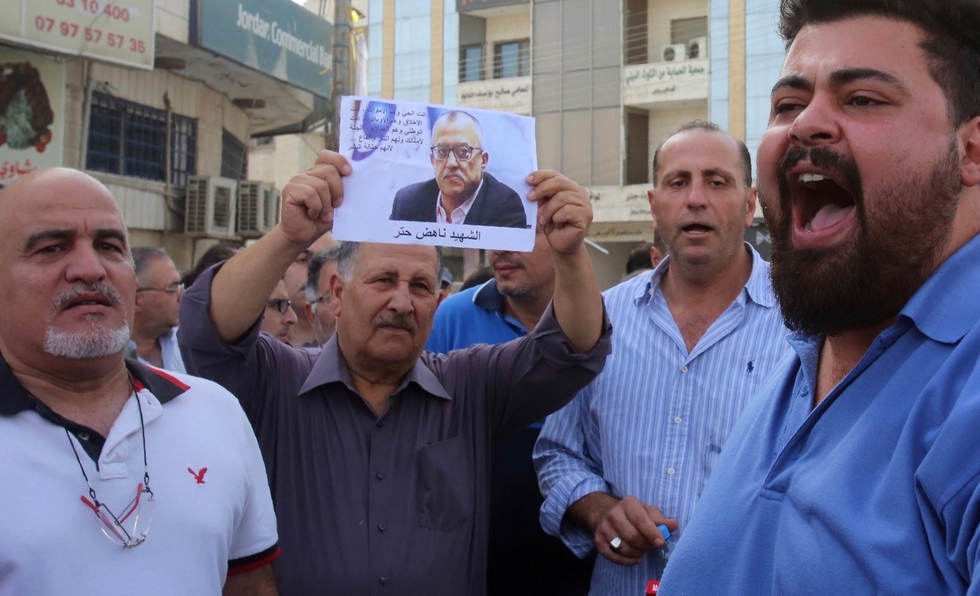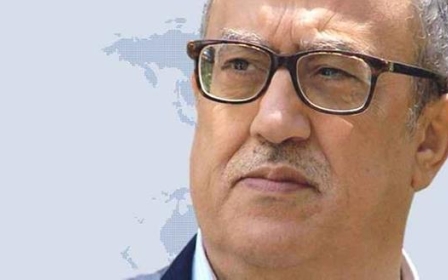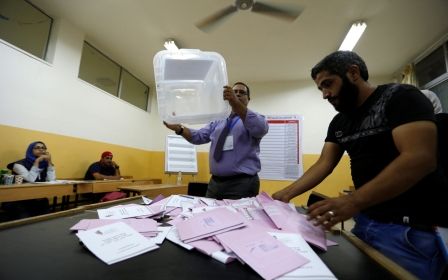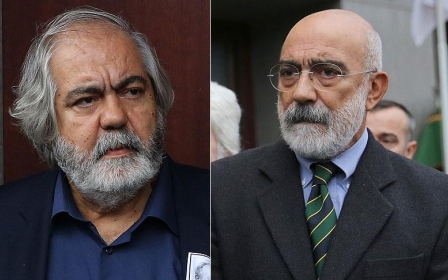ANALYSIS: Hattar murder exposes cultural faultline in Jordan

The murder of journalist Nahed Hattar outside Amman’s central courthouse has put a spotlight on the faultlines in this Muslim-majority, Christian-minority country.
Jordan bills itself as a home of moderate Islam and a model for religious co-existence in a region fast running out of countries where Muslims and Christians live side-by-side in peace. As instability has consumed the region, the country has ramped up security and maintained stability, even as it has absorbed almost a million Syrian refugees.
Sunday’s attack, the first incident of its kind, put pressure on one of the most delicate areas of Jordanian society: not coexistence between Muslims and Christians, but between secularists and the rising tide of religious hardliners.
Hattar, despite being from a prominent Christian family, was a self-described “non-believer,” a secular leftist dedicated to freedom of speech. His work had in past raised the hackles of monarchists, Islamists, Palestinians and supporters of the Syrian revolution.
The man arrested on the scene, Riyad Ismail Abdullah, was a 49-year-old former imam from Hashmi Shmali, a poor, conservative part of east Amman.
Sunday’s incident was the latest in a series of violent security lapses involving seemingly radicalised people.
“The incident today can be seen as an escalation of smouldering tension,” said Anja Wehler-Schoeck of Amman’s Friedrich Ebert Foundation (FES), which works on promoting democracy and social justice.
“Only a few weeks ago, social media in Jordan saw a controversial debate over whether Muslims were to mourn the death of a Christian youth who had died in a car accident. A current controversy revolves around unveiled women in new school books,” she said.
In recent elections, the Maan (together) party ran on a ticket promoting separation of religion and politics – something that Hattar’s relatives were echoing at a family gathering in the wake of his death.
While MPs from the Maan party won some seats in Amman, the largest bloc in Jordan’s new parliament is the Islamic Action Front, the political arm of the Muslim Brotherhood.
While party leaders condemned the killing of Hattar and cautioned Jordanians about allowing this incident to lead to social unrest, one Islamist MP took to Twitter to disagree: “Seculars are the downfall of our society,” tweeted Brotherhood MP Dima Tahboub.
For analyst Wehler-Schoeck, the schism between official rhetoric and street-level dialogue was worrying.
"I am deeply disturbed by what has happened today, and even more by the fact that some people are celebrating the murder on social media,” she said.
Jordanian writer Naseem Tarawneh, author of a high-profile blog called the Black Iris, blamed the government for creating an “enabling environment”.
“By detaining him and taking him to court, they criminalised his action, putting him in the crosshairs, and legitimised the space needed for the crazies to respond,” he wrote.
Hattar’s family, too, blamed the government. Relatives called for the head of the Minister of Interior outside the hospital where Hattar’s body was taken, and mourners screamed in rage at a government they believe let them down.
“The Interior Minister asked us to sign an agreement to release his body, saying that our security is our responsibility. Is there any other country that would tell its citizens, your security is your responsibility?” asked one relative, voice raw with grief.
“We hold the minister of interior responsible for his death. They failed to protect him outside the courthouse,” cousin Jamal Hattar told MEE.
Hours later, the government resigned – not in reaction to the family’s demands, state media said, but as a matter of due process after last week’s elections.
At the family’s base in Fuheis, a hilly, predominantly Christian area just outside Amman, relatives called for reform and for separation of religion and politics.
With the largest bloc in Jordan’s new parliament now from its most deeply religious parties – the Muslim Brotherhood and Islamist allies – their call highlights the stark challenges ahead for coexistence between the moderates and the militants – of both faiths.
This article is available in French on Middle East Eye French edition.
New MEE newsletter: Jerusalem Dispatch
Sign up to get the latest insights and analysis on Israel-Palestine, alongside Turkey Unpacked and other MEE newsletters
Middle East Eye delivers independent and unrivalled coverage and analysis of the Middle East, North Africa and beyond. To learn more about republishing this content and the associated fees, please fill out this form. More about MEE can be found here.




